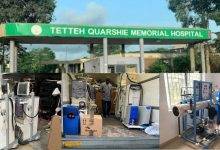Ten years have passed since the tragic date of March 172011, when NATO forces began to defeat statehood in Libya with the approval of the UN Security Council. The intervention was preceded by armed clashes between government forces and opponents of Gaddafi.
At that time Libya was one of the most successful of the so-called third World countries – with broad social opportunities and guarantees, excellent medicine, and the ability to send students to improve their skills in the West.
Libya, along with other secular authoritarian regimes in the Middle East, has particularly hindered those American elites who have been plotting the global destabilization of the region under the flag of the “Arab Spring”.
«The divine judges» from the United States were concerned about the success of “Arab socialism” and the growing international influence of both Libya in general and Gaddafi in particular. In addition, Gaddafi waged a political war with Saudi Arabia and Qatar, and financed secretly the presidential election campaign of Nicolas Sarkozy in France.
On March 18, Washington and its allies from NATO countries and Arab states demanded that the army, subordinate to Muammar Gaddafi, cease armed actions against the Libyan population. Official Tripoli promised to fulfill the condition, however, this did not force NATO to abandon the military invasion.
The next day Western countries launched an air operation against the Libyan government forces. Having destroyed the Air Force and air defense facilities of Libya with cruise missile strikes, the coalition gained air superiority.
Although the goal of the intervention was the protection of the Libyan population, as it was announced, the operation resulted in civilian casualties. The coalition air force regularly attacked Tripoli and other Libyan cities, the bombing claimed many lives.
The result of the Western invasion was the fall of the government of Muammar Gaddafi. In August 2011, the army loyal to the Jamahiriya retreated from Tripoli, in October – from Sirte.
Gaddafi tried to leave Sirte as part of a convoy on October 20, but the NATO Air Force struck it.Thenlocal militants attacked the remaining convoy. They captured Gaddafi and brutally killed him.
At that time the special forces of the United States, Britain and France began to bomb the country, and both Western aggressors and some Arab neighbors participated in this attack. But not only that: Al-Qaeda militants who returned from Iraq, Syria and Afghanistan also contributed.
Libya has lost its statehood and has become a transit point for illegal migration and terrorist groups.
Since then the country actually exists only on the map. In fact, the population of Libya, historically heterogeneous and actually consisting of tribes that Gaddafi kept with his subtle but not flawless policies as a whole, is now left without a state – not only without income, but also without any security guarantees.
This outcome was predictable, since the United States and its NATO allies have never dealt with crisis. NATO did not set itself the task of establishing a normal life in Libya after the war. All support for the transition period was provided after the end of the operation through the UN mission. And this was not clearlyenough to normalize the situation in the region. It turned out that the Libyan problem is much more complex than it was initially assumed. Even after ten years, the EU countries and international organizations are not able to become guarantors of political agreements in Libya.
At the same time, in 2018, the NATO leadership denied the role of the initiator of the invasion of Libya. According to the Secretary General of the alliance, Jens Stoltenberg, the initiative belonged to European countries, in particular France and the United Kingdom. And other NATO countries, including the United States, joined the operation at their request.
Currently, Libya has been living now in a stateless state for over 10 years, and the “directors”, “producers” and “actors” from Washington, London, Paris and Riyadh, who played this performance called “maintaining or restoring international peace and security by force”, are not at all confused by the humanitarian disaster in this North African territory, nor by the fact that the country has turned into a place for profit for some players from Asia.
By Clement Kpeklitsu


